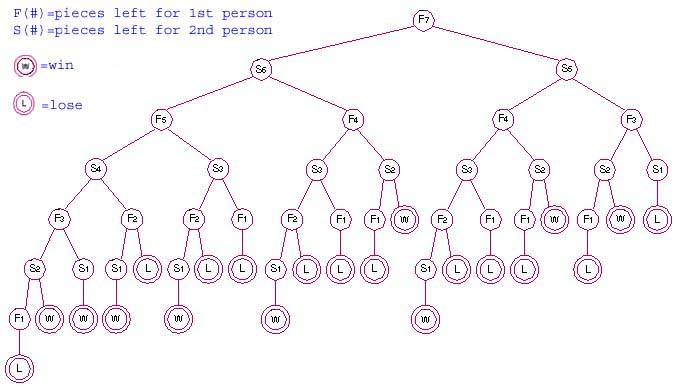I have an assignment to construct a game of Nim (a game in which two players must divide a pile of tokens into two unequal sizes; 6 can be divided into 2 & 4 but not 3 & 3). I was provided a game tree (the same one I find on Google), but I am confused. Shouldn't the first turn of the second player have access to S6, S5, and S4 and S3 since 7 can be divided into 4 & 3?

